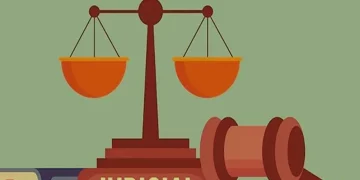We frequently engage in numerous agreements in our daily lives, ranging from buying vegetables at the market to installing and using mobile apps. However, many of these agreements may not be legally enforceable and lack recognition. To legally bind an agreement, it must be enforceable by law, and this is where contract law plays a crucial role. Additionally, as members of society, we are expected to adhere to societal norms, which are often unwritten rules accepted and practiced by groups of people. In some cases, these norms are codified into rules and laws.
The success and growth of firms, organizations, and institutions heavily rely on trust, promises, and cooperation among them. This paper aims to explore the significance of contract law in maintaining long-term relationships between parties and examine the modern approaches to contracts, highlighting their differences from traditional approaches. It will also delve into social contract theory, social norms, and how they are effectively served through inter-firm cooperation. International opinions on how firms can foster better cooperation and trust to attract and retain customers will also be discussed.
However, it is important to acknowledge the criticisms and challenges surrounding the current state of rules and practices within society. These issues can have a significant impact on inter-firm relationships. Cooperation plays a crucial role in the success of firms, both between and among them. Instead of solely focusing on long-term agreements, fostering long-term relationships between parties is essential. This perspective should be reflected in the execution of these agreements.
Conceptual Issues in Contract Law and Inter-Firm Cooperation
Social norms, although not formally written, are widely accepted by groups of people. They can be internalized, leading individuals to conform to these norms without the need for external incentives or punishments. However, it is important to have a stricter framework for social norms to prevent violations of moral and ethical behavior. This is where contract laws play a crucial role in maintaining morality, trust, and cooperation, both within and between firms.
Inter-firm relationships are vital for upholding a firm’s reputation and ensuring its growth. Cooperation plays a significant role in nurturing these relationships, aligning with the expectations of social norms. Without codified rules and laws, it would be challenging to meet these expectations. Therefore, parties often opt for contractual agreements to establish a foundation of trust and maintain their commercial relationships over the long term.
The role of contract law in maintaining cooperation and relationships within firms is essential. Contract law plays a vital function by ensuring that parties adhere to their commitments and obligations as outlined in a legally enforceable agreement. By providing a framework for establishing and upholding contractual terms, contract law helps create a sense of trust and reliability between parties, thereby facilitating cooperation and sustaining positive relationships within firms.
To foster long-term relationships both between firms and within a firm, it is crucial to establish legally binding agreements. These contracts define the rights, responsibilities, and obligations of the parties involved. They also provide mechanisms for addressing breaches of obligations and offer options for amicable settlement through alternative dispute resolution methods. Such contractual arrangements contribute to the maintenance and rebuilding of relationships by ensuring clarity, accountability, and the possibility of resolving conflicts in a mutually satisfactory manner.
Latest approaches to contracts
Traditionally, companies have utilized contracts as a safeguard against the potential abuse of power by one party to exploit the other. This includes actions such as unilaterally altering prices, changing delivery schedules, or imposing more burdensome employment conditions. In 2008, Oliver, in collaboration with economist John Moore, revisited the concept of contracts and recognized that when one party lacks cooperation, it becomes less proactive. Simultaneously, Oliver and others developed a new approach to address these challenges through the adoption of formal contracts known as the “what’s in it for we” approach (referred to as vested contracts). These written contracts are legally binding, offering a framework to foster mutual interest and success. In my opinion, implementing this methodology in inter-firm relationships would be beneficial, as it enables parties to manage their commercial associations and collectively achieve their objectives. Cooperation entails different stakeholders with diverse contributions working together.
Conceptual challenges arise when considering the relationship between the social contract theory and inter-firm cooperation.
Social contract theory encompasses various perspectives presented by different authors. According to Hobbes, in his work “Leviathan” (1651), the state of nature lacked enforceable moral standards, resulting in a self-interested pursuit of resources and a harsh existence. On the other hand, Locke, in his “Two Treatises of Government” (1690), viewed the state of nature as a condition where individuals, while free and equal, were bound by natural law to respect each other’s rights to life, liberty, and property.
By comparing these differing viewpoints, we can conclude that social contract theory emphasizes the importance of aligning human behavior and societal values. When analyzing the concepts of social norms and inter-firm cooperation, it becomes evident that firms, being composed of individuals, should integrate social norms such as morality, trust, and cooperation into their operations. Doing so adds substantial value to the firm’s functioning and overall success.
Criticism regarding social norms
“According to Eric Posner, social norms can have both positive and negative aspects, and the law plays a crucial role in reinforcing beneficial norms while challenging harmful ones. However, he argues that effectively regulating social norms is a complex task and the current understanding of social norms is insufficient to guide judges and lawmakers. To address this, Posner proposes a model that illustrates the relationship between law and social norms, highlighting how people’s desire for cooperative relationships leads to the development of certain imitative behaviors known as social norms. While empirical studies on social norms yield varied perspectives due to their informal nature and reliance on community acceptance, Posner emphasizes the importance of formalizing social norms through codification into rules and laws that align with the needs of society.”
The stance on interfirm cooperation in international countries varies widely. Different nations hold diverse perspectives and approaches regarding the significance and value of cooperation between firms.
One frequently expressed viewpoint is that the success of a firm is not solely reliant on the specific form of a long-term agreement, but rather on the strength of a long-term relationship and how effectively the exchange is conducted from the party’s perspective.
Mining suppliers in the UK emphasized that they prioritize long-term relationships over formal agreements.
Mining suppliers in Italy believed that long-term relationships naturally develop when both parties are satisfied. The majority of firms agreed that long-term relationships are beneficial in terms of accessing opportunities from the customer’s standpoint.
Dispute resolution and the enforcement of legal rights and obligations
In the present-day context, alternative dispute resolution (ADR) methods are increasingly sought after for resolving contractual disputes while the parties remain in a contractual relationship. The role of dispute resolution is crucial in maintaining long-term relationships within firms:
- ADR methods offer a friendly and cooperative approach to settling disputes, allowing parties to rebuild and preserve their long-term relationships.
- Compared to court proceedings, ADR is time-saving and cost-effective. Given the unpredictable nature of business risks, it is preferable to resolve disputes through these methods to avoid long-term losses for the parties involved.
Conclusion
In conclusion, this paper has emphasized the interconnectedness of contract law, social norms, and inter-firm cooperation. The success of inter-firm cooperation relies on the mutual understanding and collaboration among the parties involved. Cooperation plays a pivotal role in nurturing long-term relationships, which in turn requires trust between the parties. To foster such trust, binding contracts are necessary to safeguard the interests of the parties and maintain the longevity of their relationships.
Sustaining long-term relationships as expected by the parties is not without challenges. Disputes and conflicts are common in any business, but it is preferable to address them through dispute resolution methods. The scope of dispute resolution has expanded in modern times, with commercial contracts often incorporating arbitration, negotiation, or mediation clauses to facilitate mutually agreeable solutions. Through effective dispute resolution, long-term relationships can be safeguarded, serving as a prime example of how contract law, social norms, and inter-firm cooperation intersect.
In conclusion, while maintaining cooperation between firms or in inter-firm relationships can be challenging, contract laws provide a means to formalize social norms that might otherwise be informal. By transforming these norms into legally binding and enforceable contracts, the foundation for maintaining cooperation and nurturing successful relationships is established.

















